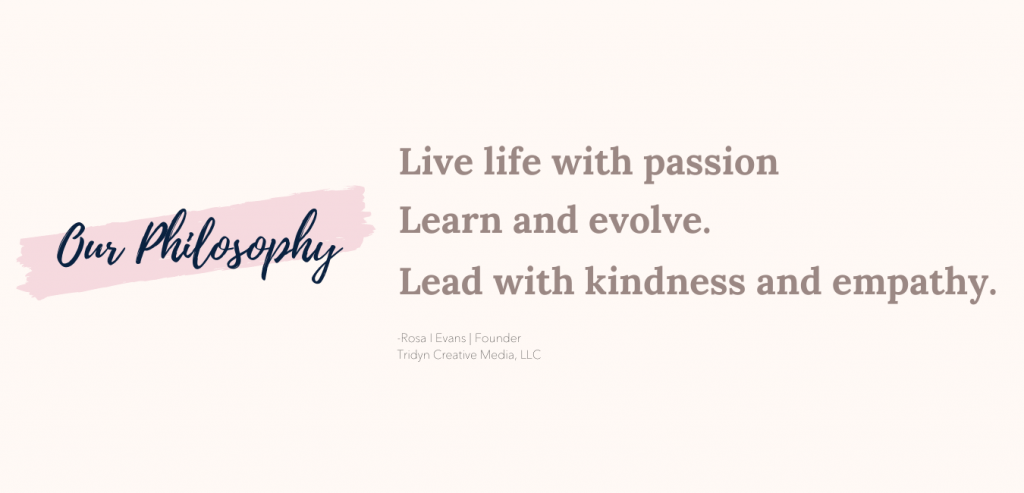Practicing Self-Compassion: The Underrated Key to Female Entrepreneurial Success

Why Practicing Self-Compassion is the Entrepreneur’s Superpower
Table of Contents
In the fast-paced, competitive world of entrepreneurship, self-compassion might seem like a luxury. But for female entrepreneurs, it’s far more than a feel-good buzzword—it’s a fundamental component of success. The journey of turning visions into viable businesses is as taxing as it is rewarding, and kindness to oneself becomes a necessary practice to thrive in such an environment.
Understanding Self-Compassion
What is Self-Compassion?
Before delving into its importance, let’s clarify what self-compassion entails. It’s the practice of being kind and understanding to oneself in instances of pain or failure, rather than being harshly self-critical. It involves recognizing that everyone makes mistakes, and these mistakes are part of the human experience.
The Elements of Self-Compassion
Mindfulness, Common Humanity, and Self-Kindness
Dr. Kristin Neff, a pioneering researcher on self-compassion, breaks it down into three critical elements: mindfulness, common humanity, and self-kindness. Mindfulness allows us to hold our experience with balanced awareness; common humanity connects our experience with those of others; and self-kindness gives us permission to be gentle with ourselves.
In embracing Dr. Kristin Neff’s principles of self-compassion, female entrepreneurs can find a powerful toolset for personal and professional well-being. Mindfulness encourages present-focused awareness, mitigating the stress of multitasking and relentless forward planning. Recognizing common humanity helps entrepreneurs see their challenges as universal experiences, not individual failings, fostering a greater sense of connection and shared purpose within the business community.

Self-kindness, perhaps the most personal of the elements, is a transformative practice allowing for self-forgiveness and patience. It is an antidote to the self-criticism that often accompanies setbacks, enabling a more nurturing and recuperative approach to entrepreneurship. This holistic model of self-compassion could become a strategic asset, enhancing leadership and resilience in the demanding journey of business ownership.
For further guidance on self-compassion, Dr. Neff’s resources can be a valuable asset (source: self-compassion.org).
The Entrepreneurial Edge of Self-Compassion
How Practicing Self-Compassion Benefits Entrepreneurs
Self-compassion is not about taking it easy or lowering standards. It’s about fostering a resilient mindset. For female entrepreneurs, this means dealing with setbacks with understanding and motivation to improve rather than with criticism and self-doubt.
Self-compassion is a powerful tool for entrepreneurs. It helps you to remain motivated and learn from your mistakes instead of being overly critical of yourself. For a female entrepreneur, it’s about understanding that it’s okay to have setbacks. It’s about looking at mistakes as chances to grow and get better. This mindset helps you bounce back faster and keep moving forward with your business. It’s not about being less ambitious but about being kind to yourself on your journey to success.
Resilience in the Face of Failure
Navigating Business Setbacks with Grace
When failure strikes—and it will—self-compassion provides a buffer. It allows entrepreneurs to view setbacks as temporary and not reflective of their worth or capability. This perspective is vital for bouncing back quickly and learning from mistakes.
Adopting self-compassion as an entrepreneur means recognizing that the road to success includes learning from every downturn. It teaches that personal value isn’t measured by temporary failures. This self-supporting mindset not only minimizes the sting of defeat but also transforms it into a stepping stone for growth. It’s a proactive approach, where entrepreneurs learn from each misstep, making informed decisions moving forward, rather than dwelling on the past. With self-compassion, setbacks become lessons that strengthen business acumen and personal resolve.
The Role of Self-Compassion in Leadership
Leading with Empathy and Authenticity
Leaders who practice self-compassion are more likely to demonstrate compassion toward others. This empathetic leadership fosters better teamwork, loyalty, and a positive work environment, all of which are conducive to success.

When a leader embodies self-compassion, it sets a powerful precedent within their organization. This approach to leadership—rooted in understanding and kindness—naturally extends outward, influencing the entire team’s culture. Employees who feel supported are more engaged, innovative, and committed. They’re part of a work environment that values well-being alongside performance, leading to a healthier, more dynamic, and ultimately more successful business. A leader’s self-compassion, then, becomes a cornerstone of a thriving and resilient workplace.
The Challenges Women Face in Entrepreneurship
The Unique Pressures of Being a Female Entrepreneur
Women in business often navigate additional challenges related to gender biases and work-life balance. These pressures can make the entrepreneurial journey even more isolating, heightening the need for self-compassion.
Female entrepreneurs often grapple with societal expectations and the struggle to achieve a harmonious blend of business leadership and personal life. This is compounded by limited access to capital, networks, and mentorship tailored for women, which can hamper growth and innovation. Such systemic barriers necessitate robust support systems that validate their unique experiences and encourage resilience. Within this context, self-compassion becomes a tool not just for personal wellness but also for creating a more equitable space in the entrepreneurial ecosystem.
Combating Imposter Syndrome
Overcoming Self-Doubt with Self-Support

Imposter Syndrome disproportionately affects women, with high-achievers often feeling like frauds. Self-compassion is the antidote, offering reassurance that they are capable and deserving of their achievements.
Self-compassion equips women to counter the false narrative of not being enough that Imposter Syndrome often imposes. By nurturing a supportive inner dialogue, women reaffirm their worth and quell doubts, strengthening their confidence to face entrepreneurial challenges.
Cultivating a Practice of Self-Compassion
Strategies for Building Self-Compassion
Knowing the importance of self-compassion is one thing, but cultivating it is another. This section provides practical strategies for integrating self-compassion into daily life, from journaling to mindfulness practices and seeking supportive communities.

To cultivate self-compassion, one might begin with mindfulness meditation, focusing on being present and non-judgmental about one’s thoughts. Regularly setting aside time for self-reflection can be beneficial, perhaps through journaling about experiences and emotional responses. Actively practicing gratitude can shift focus from one’s perceived failures to appreciations. Additionally, participating in supportive communities or groups that emphasize personal growth and self-care can provide the encouragement needed to reinforce these compassionate practices in everyday life.
Daily Habits for Self-Kindness
Rituals to Foster a Gentle Approach to Self
Establishing daily habits can reinforce the practice of self-compassion. Whether it’s setting realistic goals, celebrating small wins, or simply taking time for self-care, these rituals are crucial for maintaining emotional well-being.
Incorporating self-compassion into your daily routine can be a game-changer for female entrepreneurs. It involves deliberate actions like acknowledging the effort you’ve put into your work, even on less productive days, and treating yourself with kindness when things don’t go as planned. These small acts of self-kindness can lead to a more balanced emotional state, reducing stress and promoting a mindset that’s primed for innovation and creative thinking. Over time, these habits build a strong foundation for both personal satisfaction and professional success.
Self-Compassion as a Business Strategy
Kindness to Self Equals Business Health
Self-compassion might seem unrelated to the bottom line, but it’s quite the opposite. Entrepreneurs who are self-compassionate are more likely to take calculated risks, innovate, and pivot when necessary—all essential for business growth.
Indeed, self-compassion can serve as an innovative business strategy. It encourages a more profound resilience, allowing entrepreneurs to face the market’s uncertainties with a balanced perspective. This practice is about nurturing a mindset that can absorb shocks and adapt—a key quality in the volatile journey of business. Leaders who treat themselves with compassion foster an inner resourcefulness, which can lead to discovering unique business opportunities and strategies that those who are self-critical might miss. It’s an approach that aligns personal well-being with business health, creating a synergy that can propel the company forward.
The Link Between Well-Being and Productivity
Thriving Personally to Succeed Professionally
Personal well-being and professional success are closely linked. Entrepreneurs who are kind to themselves can manage stress more effectively, leading to better decision-making and productivity.
When an entrepreneur practices self-care and maintains a healthy work-life balance, they’re not only taking care of their personal well-being but also setting the stage for enhanced professional productivity. This balance allows for clearer thinking, more creative problem-solving, and increased stamina to tackle the challenges of running a business. By prioritizing their own well-being, entrepreneurs are better equipped to lead their teams, make strategic decisions, and drive their businesses towards success with renewed energy and focus. This holistic approach to personal and professional life fosters an environment where both the individual and the business can thrive.
Embracing the Strength of Self-Compassion
In conclusion, self-compassion is not just a personal virtue but a professional necessity. For female entrepreneurs, embracing this practice is not a sign of weakness, but a strategic approach to building resilience, fostering strong leadership, and driving business success.
Ready to embrace the power of self-compassion in your entrepreneurial journey? Join our supportive community where we share resources, strategies, and stories to help you grow personally and professionally.
Looking for more tips and insight. Discover a world of ideas on our blog.
Explore Our ArticlesRosa I Evans is the owner and founder of Tridyn Creative Media, LLC, a branding/social media/marketing agency. She holds a dual Master’s degree in media design with an emphasis on corporate branding and digital marketing, a Bachelor’s degree in Art, and an Assoc. degree in graphic design. Using her vast experience and natural creative talent, she has been instrumental in the success of many notable brands.
Find her on social @rosaievans
